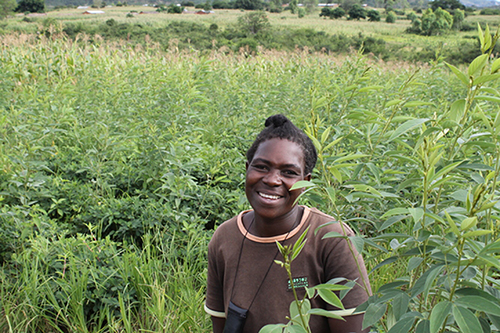HARARE – There is a scramble for unoccupied land in Africa, but this time it is not British, Portuguese, French or other colonialists racing to occupy the continent’s land – it is the continent’s urban dwellers fast turning to urban farming amid the rampant food shortages that have not spared them.
Inadequate wages have aggravated the situation of many, like Agness Samwenje who lives in Harare’s high density Mufakose suburb, and they have found that turning to urban farming is one way of supplementing their supply of food.
Samwenje, a pre-school teacher who took over an open piece of land to cultivate in vicinity to a farm, told IPS that “this mini-farming here is a back-up means to feed my family because the 200 dollars I earn monthly is not enough to support my family after becoming the breadwinner following the death of my husband four years ago, leaving me to care for our three school-going children.”
“I now spend very little money buying food because crops from my small field here in the city supplement my food,” she added.
For others, like jobless 34-year-old Silveira Sinorita from Mozambique who now lives in the Zimbabwean town of Mutare, urban farming has become their job as they battle to feed their families.
“Without employment, I have found that farming here in town is an answer to my food woes at home because I grow my own potatoes, beans, vegetables and fresh maize cobs, whose surplus I then sell,” Sinorita told IPS.
Pushed to the edge by mounting food deficits, urban farmers in other African countries have even gone beyond mere crop farming. In cities such as Kampala in Uganda and Yaoundé in Cameroon, many urban households are raising livestock, including poultry, dairy cattle and pigs.
Urban farming is mushrooming in Africa’s towns and cities at a time the United Nations is urging nations the world over to eradicate extreme poverty and hunger.
According to the Food and Agriculture Organisation (FAO), more than 800 million people around the world practise urban agriculture and it has helped cushion them against rising food costs and insecurity, although the UN agency also warns that the number of hungry people has risen to over one billion globally, with the “urban poor being particularly vulnerable.”
However, urban farming in Africa is often met with opposition from the authorities where land is owned by local authorities and agricultural experts say that opposing it makes no sense in the face of growing food insecurity.
As FAO projects that there will be 35 million urban farmers in Africa by 2020, it is supporting programmes in some countries to capitalise on the benefits.
With hunger hitting both rural and urban African dwellers hard, an increasing number of them believe that urban farming is the way to go.
– IPS
Stay informed with The Namibian – your source for credible journalism. Get in-depth reporting and opinions for
only N$85 a month. Invest in journalism, invest in democracy –
Subscribe Now!







